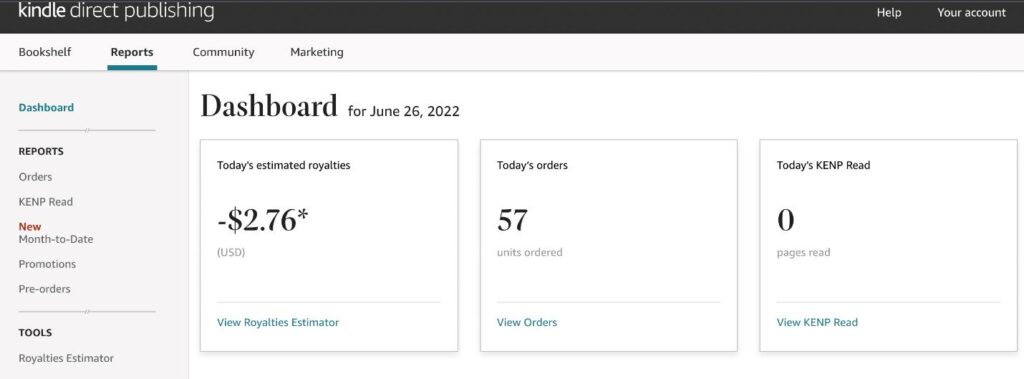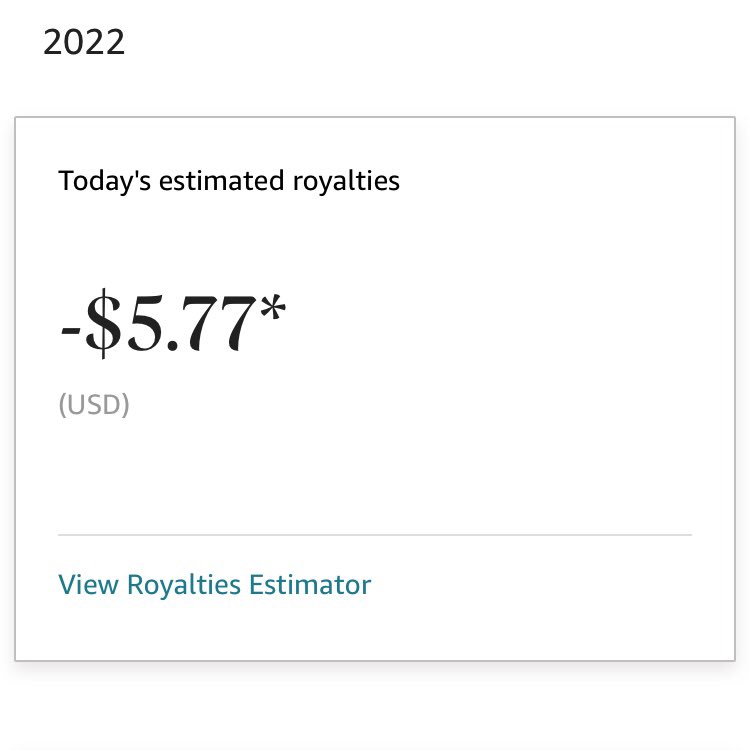By Annie Truth
It is not a pretty summer for Amazon KDP Authors. Amazon’s hidden secret is out – for years Amazon has had a draconian heavy-handed approach towards authors publishing through their self-publishing program called KDP (Kindle Direct Publishing).
Amazon Corporation, is home to many companies. In addition to owning Amazon Prime, Amazon owns several businesses that dominates every industry they enter.
In film and television, Amazon owns Amazon Originals (production), Amazon Studios (production and distribution), IMDB (World’s largest entertainment data catalog and now Streaming Channel),and Box Office Mojo (data on film financials). From production, distribution, review company, and entertainment catalog; Amazon owns and control the data of entertainment companies, films, box office sales, along with original productions and distribution. Amazon has also purchased MGM Studios.
In the books industry, Amazon controls over 70 percent of the marketplace, originally built on successful indie authors who would publish through Amazon’s self-publishing vehicle called Kindle Direct Publishing. Early top authors helped to give testimony on Amazon’s KDP program when Amazon became a manufacturer by introducing the Kindle Fire. Back in the early days of Kindle Direct Publishing, authors were courted. The more authors Amazon had, the more they would gain the marketshare over their competitors Barnes and Noble, Koble, and Apple iBooks. Borders was already a casualty of Amazon’s aggressive expansion. Soon after, Amazon opened its own publishing houses called Amazon Publishing (Amazon’s Book Publishing arm) which resembled traditional publishers. With its own publishers, Amazon Publishing soon began publishing books similar to KDP Authors’ books or acquiring them. With their dominance of the Amazon website, Amazon pushed their own books over KDP Authors’ books, which created a drive for KDP authors to pay advertising on Amazon’s Advertising to have their books shown on Amazon.
Additionally, Amazon purchased Goodreads (one of the world largest book review website), opened ACX (Amazon Audiobooks production), Book Depository, and Abe Books. Not to mentioned, the Kindle Unlimited subscription service where readers can borrow books in the program which KDP Authors must exclusively keep in Amazon.
Amazon as Inflation Contributor
Amazon controls 50 to 70 percent of the world’s online marketplace as well as the lucrative Amazon Web Services. Amazon has profit protection at the cost of the first party seller by charging wholesale vendors the difference between price changes. Amazon is known to take the data from their vendors and launching products to compete against them. In addition, Amazon has profited from inflation, charging their vendors higher fees which is passed along to consumers. In 2022, Amazon is estimated to earn over $181 Billion in fees of their vendors, small businesses, and third party sellers. With owning 50 to 70 percent of the marketplace, many vendors and sellers cannot not have a presence on Amazon and participate in Amazon’s price setting which hurt consumers overall. Elizabeth Warren leads the committee in Congress investigating antitrust practices of Amazon, but it is not enough. Amazon continues to grow.
Meanwhile, the EU has started looking into anti-competitive antitrust law issues of Amazon in Europe where Amazon offers cut-throat low prices to drive out their online competitors.
In May 2022, Amazn’s stock went down $861 billion and posted growth numbers worse than Apple, Google, and Microsoft. As one of the most hated corporations in the world, Amazon is already famously known for mistreating their employees.

Amazon Abuses KDP Authors and Other Publishers by Removing Books, Suppressing Sales and Traffic in Order to Compete Against Them
The authors known as KDP Authors, who helpd drive traffic to the top website in the world in Amazon’s early days, have experienced suppression of books, removal of books from Amazon sometimes for no reason other than it had disappeared, even removal of reviews, which Amazon could claim was due to reviewers knowing the author, despite many authors and reviewers not having any relationships at all. The removals are inconsistent and targeted towards certain authors. One top author even found many of her books removed on Amazon.com while the KDP dashboard stated the books are active and online. Many of Amazon Publishing’s book reviews are in the tens of thousands witout the ability to see more than 10 reviews which brings into question if those reviews are valid.
Many authors are deathly afraid to speak up against Amazon, prefering to remain anonymous. They fear retaliation, loss of sales, removal of books, and more. “It’s our livelihoods they are playing with,” one author states. “But we have no choice but to publish through Amazon since they own the marketplace. We are forced to accept everything they dish out.”
Many authors have had thousands of books wiped out from their Pre-order sales, without reinstatement of sales, a solution, and even compensation. One author whose charity anthology for Ukraine recently lost all their pre-order sales when Amazon suddenly wiped out all their pre-orders claiming they did not load a manuscript. The author videotaped the book’s manuscript being loaded as well as following all procedures to publish. She adamently claimed the manuscript was loaded. It has become so common that authors and publishers through KDP have began to record their upload process in case of a dispute.
Authors have lost millions of dollars from KDP “glitches” without compensation.
Amazon Now Charge KDP Authors for Book Returns, Profiting Off of Authors
KDP authors (who are the victims) are waking up to negative sales and even a charge for people returning their ebooks because a TikTok trend telling people to treat books they buy on Amazon like library books. Buy it, return it. Authors’ sale on that book is removed, but also penalized. Authors publishing through KDP are charged by Amazon for return books.




“Amazon has too much control over our lives,” one author states. “If only there are alternatives.” Many agree Amazon should be broken up into different businesses like the telecom companies were. “That would make them more competitive and less draconian.”



